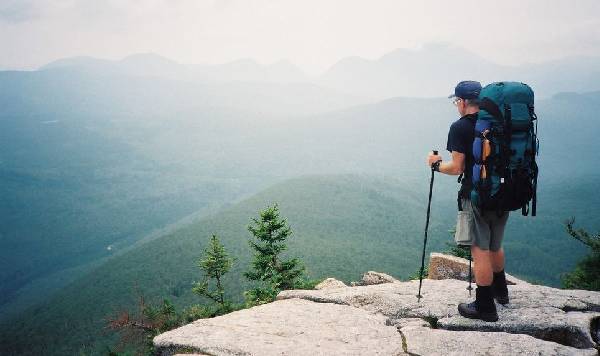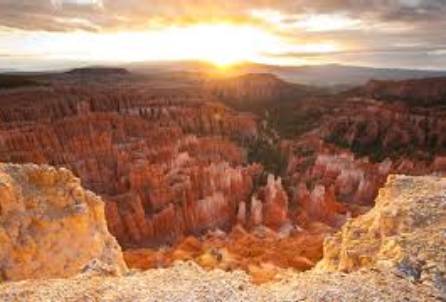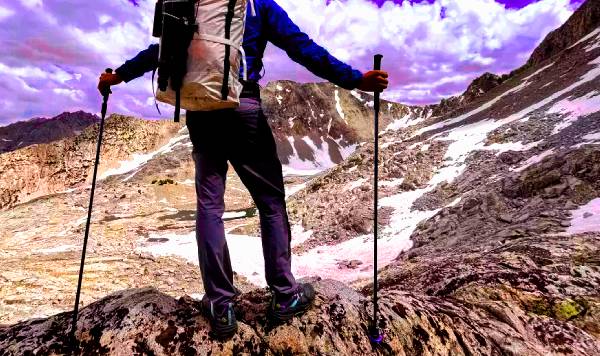Mountain hiking in the United States provides an exhilarating mix of adventure. It offers stunning vistas and a chance to connect with nature. With its diverse landscapes ranging from rugged mountain ranges to serene forests, the U.S. is a top destination for hiking enthusiasts of all levels. Whether you’re a seasoned trekker or a casual walker, the trails across this vast country promise unforgettable experiences. They cater to every preference.
Exploring the East: Appalachian Trail Adventures

Overview of the Appalachian Trail
The Appalachian Trail (AT) stretches over 2,190 miles from Georgia to Maine, making it one of the longest continuous footpaths in the world. This iconic trail traverses 14 states and showcases a variety of ecosystems, from lush forests to rocky summits.
Must-Visit Sections of the Appalachian Trail
Some of the most breathtaking sections of the AT include:
- Shenandoah National Park, Virginia: Known for its scenic views and abundant wildlife. This section is easily accessible. It offers numerous day hikes.
- Great Smoky Mountains, North Carolina/Tennessee: This section features diverse flora and fauna. It offers stunning views from Clingmans Dome. This is the highest point on the AT.
- Mahoosuc Notch, Maine: This section is often referred to as the “toughest mile.” It is a challenging scramble through boulders and dense forest.
Best Times of Year to Hike the Appalachian Trail
The ideal times to hike the AT are spring (April to June) and fall (September to November). Spring offers blooming wildflowers and moderate temperatures, while fall showcases vibrant foliage and cooler weather.
Tips for a Successful Appalachian Trail Hike
- Plan your route: Familiarize yourself with the sections you intend to hike, considering your fitness level and experience.
- Stay hydrated: Water sources can be scarce; carry a water filter or purification tablets.
- Leave no trace: Respect the environment by following Leave No Trace principles.
The Majestic West: Iconic Trails in the Rockies
Introduction to the Rocky Mountains’ Hiking Trails

The Rocky Mountains offer some of the most breathtaking hiking trails in the U.S., with towering peaks, alpine lakes, and diverse wildlife. From Colorado to Wyoming, these trails provide a unique opportunity to explore the rugged beauty of the American West.
Highlighting the Best Trails in Colorado and Wyoming
- Longs Peak, Colorado: A challenging 14,259-foot peak, the Keyhole Route is a popular ascent for experienced hikers.
- Grand Teton National Park, Wyoming: The Cascade Canyon Trail offers stunning views of the Teton Range and opportunities for wildlife spotting.
Scenic Views and Wildlife Encounters on Rocky Mountain Trails
Hiking in the Rockies often includes encounters with elk, bighorn sheep, and even bears. The panoramic views from many trails are nothing short of spectacular, making every step worthwhile.
Preparing for High-Altitude Hikes in the Rockies
Acclimatization is crucial when hiking at high elevations. Take time to adjust, stay hydrated, and recognize the signs of altitude sickness.
Pacific Northwest: Where Forests Meet Mountains
Exploring the Cascade Range’s Most Stunning Trails
The Cascade Range in Washington and Oregon boasts some of the most picturesque hiking trails in the U.S. The region is known for its lush forests, volcanic peaks, and stunning waterfalls.
Hidden Gems: Lesser-Known Trails in Washington and Oregon
- The Enchantments, Washington: A stunning alpine area featuring crystal-clear lakes and rugged granite peaks. Permits are required for overnight camping.
- Smith Rock State Park, Oregon: Known for its unique rock formations and excellent views, it’s a great spot for both hiking and rock climbing.
The Intersection of Rainforest and Mountain Terrain
The Pacific Northwest features a unique combination of rainforest and mountainous terrain, providing hikers with a diverse range of ecosystems to explore.
Weather Considerations for Hiking in the Pacific Northwest
The weather can be unpredictable, so layering is essential. Be prepared for rain, and always check forecasts before heading out.
The Southwest Experience: Desert Mountains and Unique Landscapes
Hiking Through the Grand Canyon: A Different Mountain Experience

The Grand Canyon offers a unique mountain hiking experience, with trails like the Bright Angel Trail leading to the Colorado River. The stunning vistas and geological formations make it a must-visit for any hiker.
Discovering the Red Rock Trails of Arizona and Utah
- Zion National Park, Utah: The Angel’s Landing trail is famous for its breathtaking views and thrilling drop-offs.
- Sedona, Arizona: Known for its red rock formations and vibrant sunsets, trails like Cathedral Rock offer both beauty and challenge.
How to Stay Safe While Hiking in Desert Mountain Climates
Desert hiking requires special considerations, such as carrying ample water, wearing sun protection, and avoiding midday hikes during the hottest months.
Essential Gear for Desert Mountain Hiking
Invest in lightweight, moisture-wicking clothing, a good pair of hiking boots, and a reliable hydration system to ensure a safe and enjoyable hike.
Top Tips for Planning Your US Mountain Hiking Adventure
How to Choose the Right Trail for Your Skill Level
Research trails that match your experience and fitness level. National park websites and hiking forums can provide valuable insights.
Essential Gear and Packing List for Mountain Hiking
- Footwear: Sturdy hiking boots or shoes
- Clothing: Layered clothing suitable for changing weather
- Navigation tools: Map, compass, or GPS device
- Emergency gear: First aid kit, whistle, and flashlight
Safety Tips for Navigating US Mountain Trails
Always inform someone of your hiking plans, carry a map, and familiarize yourself with the area’s wildlife and terrain.
The Best Apps and Resources for Trail Information
Utilize apps like AllTrails or Gaia GPS for trail maps, reviews, and updates on trail conditions.












Leave a Reply